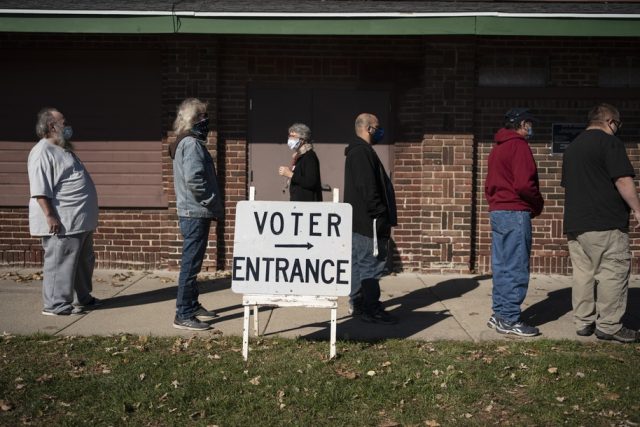[ad_1]
In 1993, a Democratic-controlled Congress passed the National Voter Registration Act, designed to make voter registration easier and more uniform from state to state. It was also known as the motor-voter bill, because it established procedures for people to register while simultaneously applying for a driver’s license.
In debating the legislation at the time, Congress considered a provision that would have allowed states to require proof of citizenship if they chose. That provision initially made it into the Senate version of the bill. But then a conference committee ironing out differences between different versions decided that the final legislation shouldn’t include it, because it “would have eviscerated the mail-in registration provisions and stripped the bill of its uniform and nondiscriminatory components,” U.S. Rep. John Conyers, a Michigan Democrat, said at the time.
Some House members tried to put it back in, warning about the specter of noncitizen voting. Without a provision explicitly allowing states to require proof of citizenship from people registering to vote, the National Voter Registration Act would be “an invitation to electoral fraud,” declared U.S. Rep. Christopher Cox, a California Republican, according to the Congressional Record. “In fact, it should be called the Illegal Alien Voter Registration Act.”
Under the NVRA, “all any individual in this country, citizen or not, minor or adult, has to do is send in a postcard saying that he is a citizen, that he is of age and that he is qualified to vote,” said U.S. Rep. Bob Livingston, a Louisiana Republican who pushed hard to give states the citizenship-proof option, “and this bill prohibits any State from requiring any documentation to the contrary,” Christopher Cox
But that’s the law Congress passed, ultimately deciding that allowing states to impose a citizenship-proof requirement was not consistent with the aims of the legislation. The NVRA underpins many of the courts’ deliberations and decisions on the requirements for voter registration, and since its passage, at least some judges have noted the clarity of the congressional record when weighing attempts to require some form of proof of citizenship to vote in federal elections.
Related | It’ll likely be harder to vote in this state, thanks to Trump’s election lies
The League of Women Voters, a nonpartisan nonprofit that works to register eligible voters across the country, was among the groups lobbying against the provision at the time. CEO Celina Stewart said one of the pens President Bill Clinton used to sign the NVRA still hangs in the group’s offices. After Trump’s executive order this week, she said she’s “disheartened that we still have to talk about it in 2025.”
The fact that we are talking about it again, though, suggests that the question of whether proof-of-citizenship requirement is an unreasonable barrier to voter registration is still an unsettled issue. And Trump’s decision to put a proof-of-citizenship requirement in his executive order suggests that he’s determined to get this done, even if the SAVE Act isn’t able to clear hurdles in the Senate.
Stewart said she does not believe that Trump can require proof of citizenship via executive order, or that the SAVE Act is the right way to ensure that only eligible voters can cast ballots. If lawmakers want to ensure clean voter rolls or deter fraud, she said, they need to “go back to the drawing table and figure out a bipartisan way to get that done.”
[ad_2]
Source link




